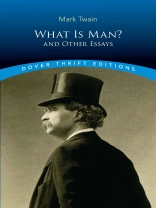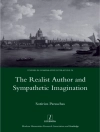These acerbic, poignant, and thought-provoking essays concern mankind, its relationship with God, and how the mind works. Twain himself considered them dark and cynical, delaying their publication for many years before finally releasing them as an anonymous, limited-edition collection.
The title essay constitutes a deeply felt blow against religious hypocrisy, written in the form of a Socratic dialogue between a young idealist and an elderly, world-weary professor. The pair debate such issues as whether man is essentially a machine or has free will, whether personal merit is meaningless, and whether people have any impulse other than the pursuit of pleasure or the avoidance of pain. Other featured essays include ‘The Turning Point of My Life, ‘ ‘As Concerns Interpreting the Deity, ‘ ‘Is Shakespeare Dead?’, and more, covering a wide range of Twain’s interests. In several places in the text, Twain’s own handwritten drawings are included. With its focus on the more sardonic side to the author’s humor,
What Is Man? merits a place on everyone’s Mark Twain reading list.
สารบัญ
WHAT IS MAN?
THE DEATH OF JEAN
THE TURNING-POINT OF MY LIFE
HOW TO MAKE HISTORY DATES STICK
THE MEMORABLE ASSASSINATION
A SCRAP OF CURIOUS HISTORY
SWITZERLAND, THE CRADLE OF LIBERTY
AT THE SHRINE OF ST. WAGNER
W ILLIAM DEAN HOWELLS
ENGLISH AS SHE IS TAUGHT
ON GIRLS
A SIMPLIFIED ALPHABET
AS CONCERNS INTERPRETING THE DEITY
CONCERNING TOBACCO
THE BEE
TAMING THE BICYCLE
IS SHAKESPEARE DEAD?
เกี่ยวกับผู้แต่ง
After the Civil War, Samuel Clemens (1835–1910) left his small town to seek work as a riverboat pilot. As Mark Twain, the Missouri native found his place in the world. Author, journalist, lecturer, wit, and sage, Twain created enduring works that have enlightened and amused readers of all ages for generations.












